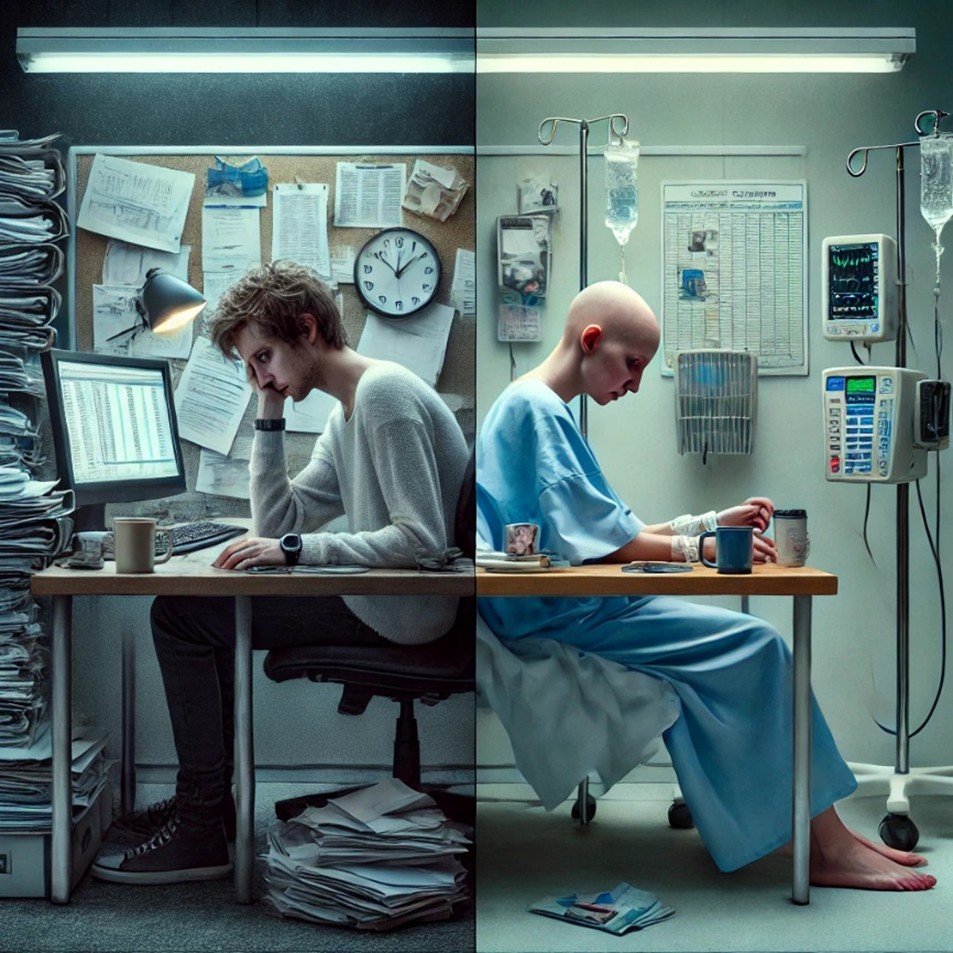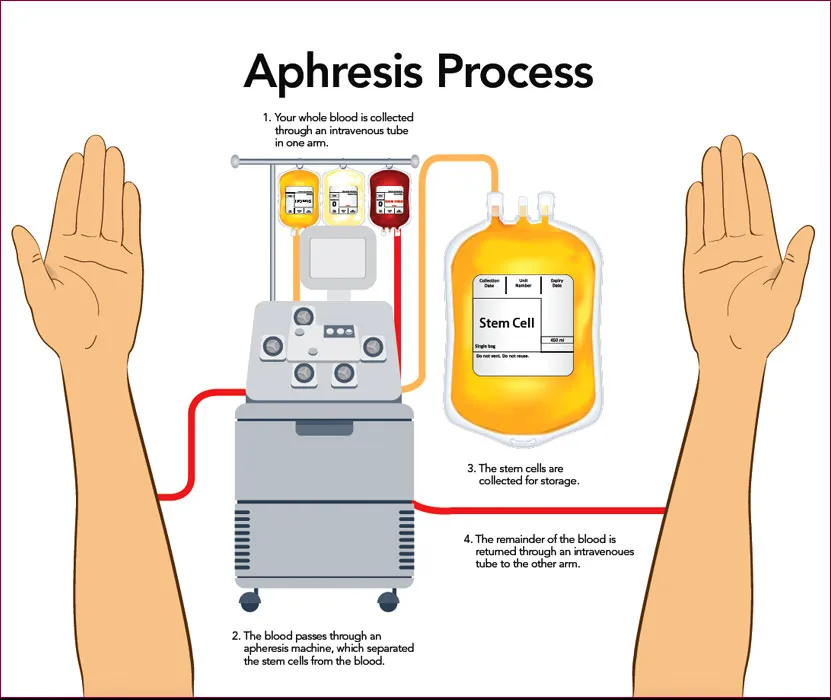Accelerated Aging is Associated with Increased Cancer Risk in Younger Adults. Adopt a Personalized, Precision, Preventative Approach to Maintain a Younger Biological Age
Accelerated Aging is Associated with Increased Cancer Risk in Younger Adults. Adopt a Personalized, Precision, Preventative Approach to Maintain a Younger Biological Age
By Dr. Dipnarine Maharaj MD, FACP

In August 2024 we received the shocking news that our friend Carol who is age 59 was diagnosed with pancreatic cancer which had spread to her liver. She had recently re-married, and she and her husband were looking forward to their vacation/honeymoon. She was very active, exercised every day, ate heathy foods, did not smoke or drink alcohol, and she had looked like a picture of health the last time we saw her. Prior to her diagnosis she saw her doctor because she was feeling tired and she had some indigestion which was thought to be related to stress at her work. Recently another apparently healthy acquaintance age 59 was diagnosed with pancreatic cancer and she is now receiving palliative care after chemotherapy and subsequent clinical trial drugs failed to help her disease. Steve Jobs, the famous inventor, entrepreneur and the co-founder of Apple died of pancreatic cancer at age 56.
There are certain clues about why some types of cancer are on the rise in younger adults and an interesting lead is the connection to accelerated biological aging. Cancer is widely thought to be an aging disease and the average age at which people are diagnosed with cancer is around 66 years old. According to statistics from the National Cancer Institute the incidence rises sharply from age 55 to 59 with the highest incidence in the 85+ age group. However, recent trends indicate a rise in early-onset cancers, defined as cancers diagnosed in individuals younger than 55 years.
So, cancer is an aging disease that is really coming to a younger population with an older biological age.
Accelerated aging refers to the premature aging of cells and tissues, leading to a biological age that is higher than the chronological age, and has been increasingly linked to a higher risk of early-onset cancers in younger adults. This process can be influenced by various factors:
- Genetic Predisposition: Certain genetic mutations can predispose individuals to accelerated aging.
- Environmental Stressors: Exposure to pollutants, radiation, and other environmental toxins can accelerate cellular aging.
- Lifestyle Factors: Poor diet, lack of physical activity and chronic stress are significant contributors to accelerated aging
The research on biological aging is proceeding with intense interest as the fields of longevity medicine, lifestyle medicine, and as desire for health span in the global population increases. In a recent report scientists at the University of Washington in St. Louis looked at the medical records of 148,724 people ages 37 to 54 who are participants in a large data registry called the UK Biobank. They studied nine blood-based markers that have been shown to correlate with biological age. These nine values were then plugged into a program called pheno-age that was used to calculate each person’s biological age. Accelerated aging was determined by comparing people’s biological ages with their chronological ages.
Cancer registries were then checked to see how many in the group had been diagnosed with early cancers, which were defined as cancers appearing before age 55. There were 3,200 cancers diagnosed.
After adjusting the data for factors which they thought might bias their results, the researchers found that accelerated aging was associated with increased risk for cancer. The strongest associations were seen with lung, stomach and intestinal, and uterine cancers. Compared with people who had the smallest amount of aging in the biobank samples, those who scored highest had:
- Lung Cancer: twice or 100 percent the risk of early-onset lung cancer
- Gastrointestinal Cancer: more than 60% higher risk of a gastrointestinal tumor which includes pancreatic cancer
- Uterine cancer: more than 80% higher risk of uterine cancer
The researchers found that people born in 1965 or later were 17% more likely to show accelerated aging than those born from 1950 through 1954.
The limitation of this study was that it was done at a specific moment in time and not over time, and it is possible to change these risks by developing, implementing, and persisting with strategies to reduce accelerated aging.
The study results are exciting because they could point to a better way to find people who are at higher risk of getting cancer when they’re young. Right now, young adults who don’t have a family history or other risk factors are not regularly screened for most kinds of cancer.
This trend suggests that modern lifestyle and environmental factors may be contributing to the increased incidence of early-onset cancers due to accelerated aging.
The American Association for Cancer Research studies show that more than 40 percent of all cancers diagnosed and nearly half of all deaths from cancer in the United States can be attributed to preventable causes-things like smoking, excess body fat, physical inactivity, and excessive exposure to sun. There is further evidence that an unhealthy lifestyle and environment with exposure to excessive toxins and stress increase cancer risks.
To mitigate the risk of accelerated aging and its associated cancer risks, several preventive measures can be adopted:
- Healthy Diet: Consuming a balanced diet rich in antioxidants can help reduce oxidative stress and slow down cellular aging.
- Regular Exercise: Physical activity is known to improve overall health and reduce the risk of chronic diseases, including cancer.
- Stress Management: Techniques such as mindfulness, meditation, and adequate sleep can help manage stress and its impact on aging.
An important question is why cancer occurs with biological aging.
We all long for cancer to be eliminated completely. This is possible and there are many people who live to be centenarians (chronological age over 100) without ever being diagnosed with cancer and other chronic diseases. They are referred to as being cancer resistant. The key to their lifelong health success is that they are biologically young and maintain a normal immune system until the time they die. Their cancer surveillance immune system is what prevents them from getting cancer. Studies have shown that those individuals who do not get cancer have a No Immune Risk Profile when their immune system is tested by a blood test.
The goal for us all is to prevent cancer from developing in the first place, particularly for those individuals with an accelerated and increased cancer risk due to their toxic and stressful occupations such as firefighters, airline staff, those exposed to radiation, or who have a family history of cancer or genetic risk e.g. the BRCA-1 gene variant or any other cancer associated gene.
The immune system and its cancer surveillance function decreases with what is known as “normal” chronological aging. With this “normal aging” for most of the population (centenarians defy cancer by maintaining a healthy immune system), cancer surveillance data shows that the risk of cancer occurring in a 65-year-old is 2,000 times greater than in a 20-year-old. Between the ages of 20 to 40 the immune system remains normal and thereafter it begins to decline. By the age of 65 it takes a nosedive, hence the increased incidence of not only cancer but other chronic diseases such as heart disease or Alzheimer’s.
Prevention of cancer must be the goal. Many patients are shocked and disappointed when they are told they have cancer, especially after they have been living what they believe to be a healthy lifestyle and doing all the right things to prevent cancer.
Genetic testing has come a long way and is now being used routinely in cancer care, including its use in the early detection of cancer. Currently available genetic blood tests can detect up to fifty different types of cancers with varying degrees of sensitivity.
All individuals at risk of cancer have an additional option which is a personalized and precision-based approach to do blood tests to measure their immune system. As part of this comprehensive test, natural killer cell numbers and function are measured. Natural killer cells are part of the innate immune system and can recognize cancer cells and distinguish them from normal cells. They have spikes on their surface which allow them to penetrate the surface of cancer cells on contact and inject toxins called perforins and granzymes which kill the cancer cells. Thereafter they send signals to the B cells and T cells of the adaptive immune system (which has immunological memory) so that there is a further attack on the cancer, and they provide memory to kill the cancer cells to prevent recurrence in the future. If an immune system test result shows abnormalities, the individual is empowered. They can be their own advocate to take action to correct their cancer surveillance system and prevent the onset or recurrence of cancer.
A further step for those individuals who wish to be proactive and who have a normal immune system blood test is to collect and store their stem cells and immune cells for future restoration of their immune system. This is a safe procedure and each year approximately 20,000 healthy individuals undergo this process and donate their stem cells and immune cells to another unrelated or related person. It is very important for these donations to occur, but everyone can do the same process for themselves. It is likened to having a “twin” whose immune system is not aging because they are stored in the stem cell cryobank.
All individuals can adopt a personalized, precision, preventative approach to maintain a younger biological age and reduce the risk of cancer and chronic diseases of aging. These are exciting times which allows each person to adopt measures such as using markers of biological aging e.g PhenoAge, and The Immune Risk Profile, as well as genetic testing. These tests can be done serially to show improvements based in the measures they have adopted. Using this approach individuals can do more of what’s working and less of what is not working in their plans.
Our goal at the Maharaj Institute is for everyone to measure and implement the personalized, precision, preventative approach to maintain a younger biological age measures outlined because the way to cure cancer is to prevent it.
Please call Dr. Maharaj at 561-752-5522 to see how he and his team can help you measure and maintain your healthy immune system as well as to test and measure your inflammation. These are non-invasive tests that will provide a clear picture of where your immune health lies, and should it reflect abnormalities, we have the resources to help correct them. We look forward to hearing from you at the Maharaj Institute in Boynton Beach, Florida at 561-752-5522 or info@bmscti.org. Visit us at https://maharajinstitute.com
Request An Appointment
Please fill out the form to request an appointment. We will contact you shortly to confirm the exact day/time.



